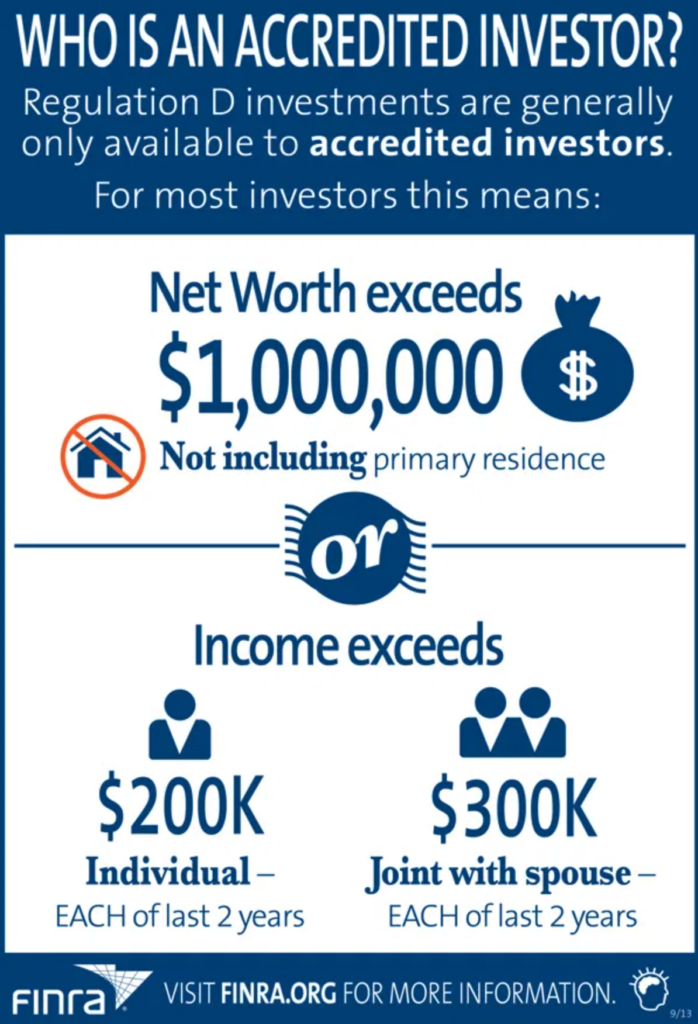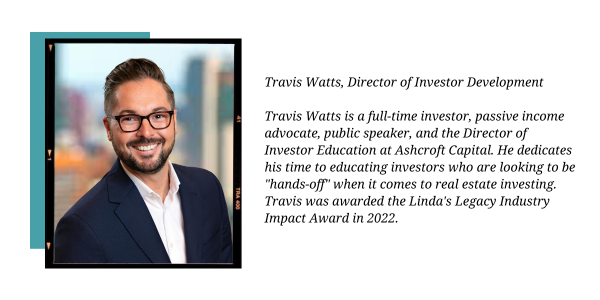April 30, 2024
By: Travis Watts, Director of Investor Development
Are You an Accredited Investor?
Let’s take a look into the term “accredited investor.” Every week I have the privilege to speak with investors who are excited to start investing in multifamily syndications or real estate “private placements.” These investors are usually on the search to find access to deals. However, it is essential to note that many offerings are limited to accredited investors.
What Does Being an Accredited Investor Mean?
The Securities and Exchange Commission (SEC) definition of an accredited investor, in the context of a natural person, includes anyone who:
- Earned income that exceeded $200,000 (or $300,000 together with a spouse or spousal equivalent) in each of the prior two years, and reasonably expects the same for the current year, OR
- Has a net worth over $1 million, either alone or together with a spouse or spousal equivalent (excluding the value of the person’s primary residence), OR [1]
- Holds in good standing a Series 7, 65 or 82 license.
There are other ways to qualify[2], but for this guide, I assume most of the audience falls under the individual accredited investor status.
Why Accreditation Exists
Essentially, the criteria for accredited investor status in certain offerings were established to ensure that all participating investors possess financial sophistication and are capable of independently managing or bearing the risk of loss.
The Advantages to Being an Accredited Investor
In short, the advantage is that you have an opportunity to hear about more deals, gain access to them, and ultimately invest in those deals if you choose.[4]
Opportunities May Include:
- Real Estate Syndications (Private Placements)
- Angel Investing/Venture Capital
- Hedge Funds
Becoming an Accredited Investor
Some private placements require self-verification. Essentially, youcertify as part of the legal documents thatyou are an accredited investor and by which method you qualify.
In other types of private placement offerings, such as an offering under Rule 506(c) of Regulation D, you may be required to submit a letter of accredited investor verification from a licensed attorney, a CPA, an SEC-registered investment adviser, or a registered broker-dealer certifying that you are accredited usually through a third-party verification service such as Ashcroft Capital Accreditation (parallelmarkets.com).
Reviewing the Advantages
Ultimately, being an accredited investor allows you access to additional investment offerings and opportunities that most do not have access to. If you are actively looking for deals and talking to investment firms in the industry, it is likely that you will come across only opportunities that require this status for compliance and regulation purposes.
If you would like to learn more about investing in multifamily assets, or investment opportunities, schedule a call with Investor Relations today.







